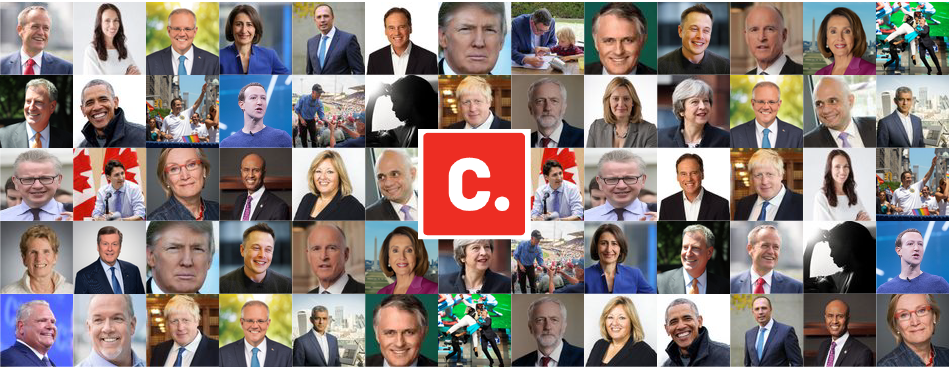Change.org is a global platform made up of passionate individuals, from seasoned activists to first time agitators. No matter the individual, though, petition starters all share the same goal—bringing attention to issues in need of action. This includes both the supporters who sign your petition and the individuals or organizations with the actual decision-making power to enact the change you’re seeking.
A petition, like any story, needs characters, and often a central character of a Change.org petition is the person or organization the petition aims to influence.
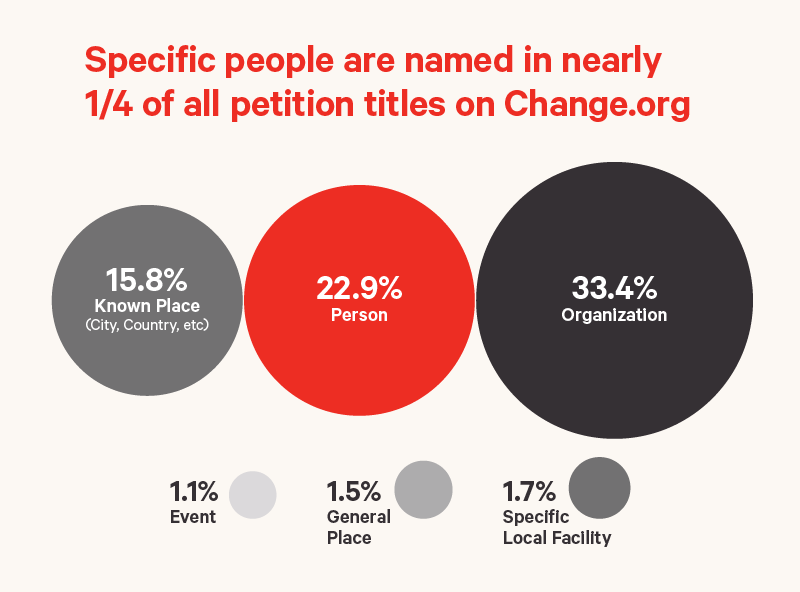
Based on our research, nearly a quarter of petitions on Change.org name a known public figure in their title. Almost always, this person is the petition’s ‘Decision Maker,’ the individual chosen by the petition starter as the person who has the most power to respond to the petition directly. One of the most crucial steps in starting a petition on Change.org is identifying who this person is and ensuring your petition is written as something they’ll notice.
Politicians Are the Most Frequently Addressed Individuals on Change.org
By far, the most common types of decision makers addressed on Change.org were either major political figures or leaders of large private or public organizations. We examined petitions in the United States, United Kingdom, Australia, and Canada—unsurprisingly, we found that the leader of each respective country during the studied period was its most petitioned individual. Only one person—U.S. President Donald J. Trump—appears in lists of the top 10 individuals petitioned in each of the four studied countries, which is perhaps not surprising given his status as the most polarizing U.S. President on record.
Only one other person, Facebook’s Mark Zuckerberg, appeared on more than one list (he appeared on all except Australia). Again, this is perhaps expected, given that our studied time period coincided with a period of unprecedented controversy for a company with over 2.4 billion monthly active users. Interestingly, the United States was the only country in the study whose top 10 list consisted exclusively of its own citizens.
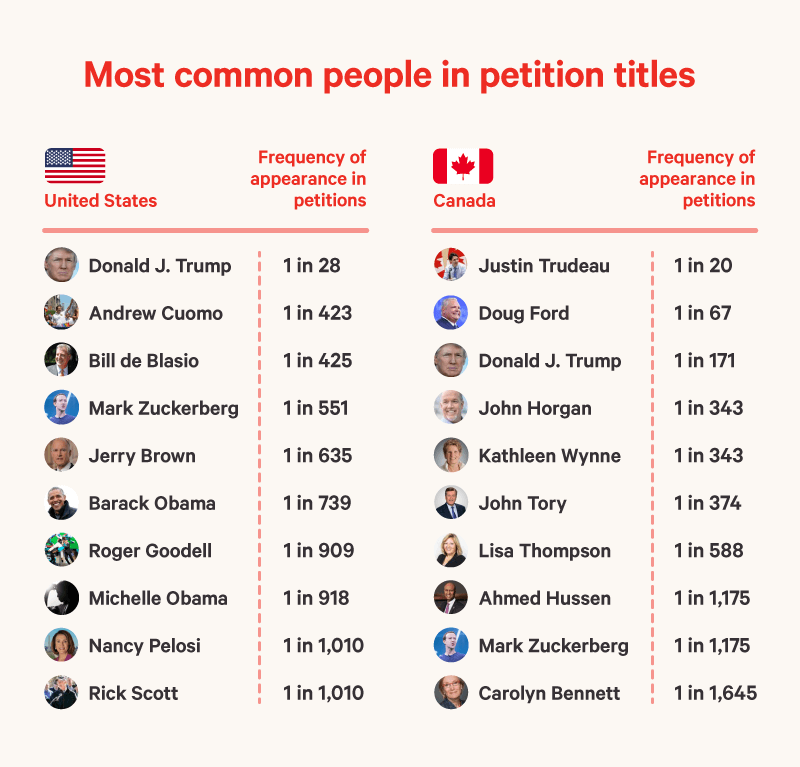
Canada accounted for the smallest volume of petitions in the study (about 6% of the total), but they were the most likely overall to be addressing petitions to their head of state—1 out of every 20 Canadian petitions
directly addressed Prime Minister Justin Trudeau. The remainder of their list was likewise dominated by Canadian politicians, with only one spot occupied by an individual not holding elected office in Canada.
In the United States, three current or former state governors—Andrew Cuomo of New York, Jerry Brown of California, and Rick Scott of Florida—made the list, as did former President Barack Obama. The U.S. list was also the only one to include multiple individuals who have not held government office—bestselling memoirist and former First Lady Michelle Obama, Zuckerberg, and National Football League Commissioner Roger Goodell The U.S.
The top spot in the United States belonged to U.S. President Donald J. Trump, who was the subject of the most-signed petition in the history of the platform in 2016. While the most-signed Trump petition during our study’s time frame actually originated in the United Kingdom after the visiting President made comments on the National Health Service, Americans petitioned him with extraordinarily high frequency on virtually every major stance taken by his administration. Below are the top ten petitions directed at President Trump during the period we studied.
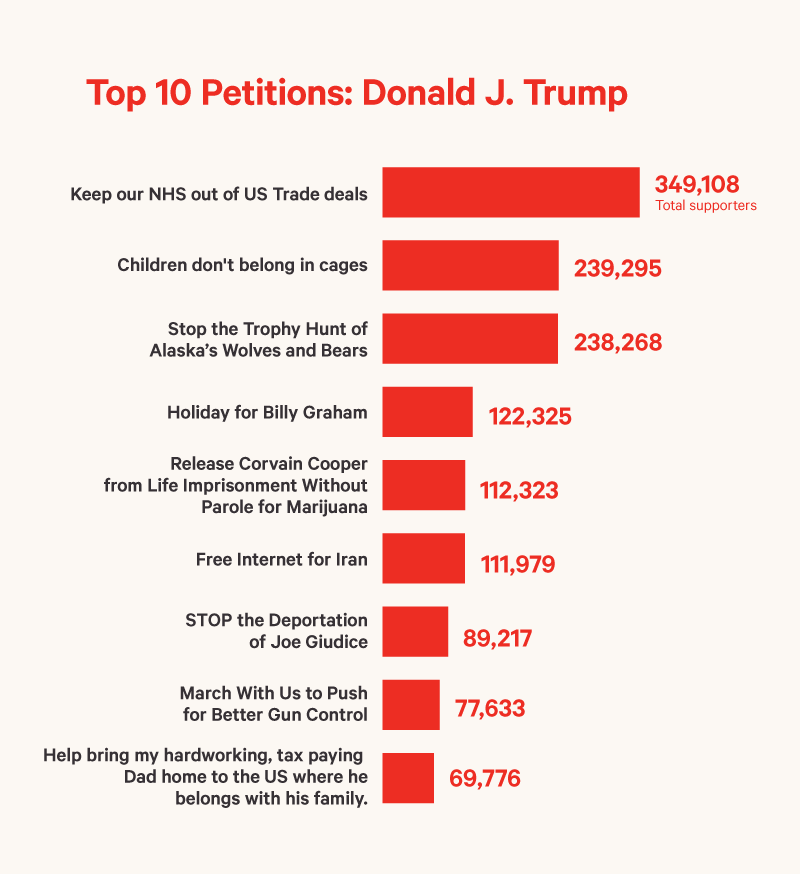
In the United Kingdom and Australia, all but two of the most petitioned individuals were non-politicians (Mr. Zuckerberg in the UK and Elon Musk in Australia. Theresa May, who announced her resignation as UK Prime Minister in May of 2019, received hundreds of petitions from Britons during the studied period. While heads of state topped the lists in all four countries, Ms. May was the recipient of the most-signed petition among the group, a one-million-signatures-plus call for a second EU Referendum vote.
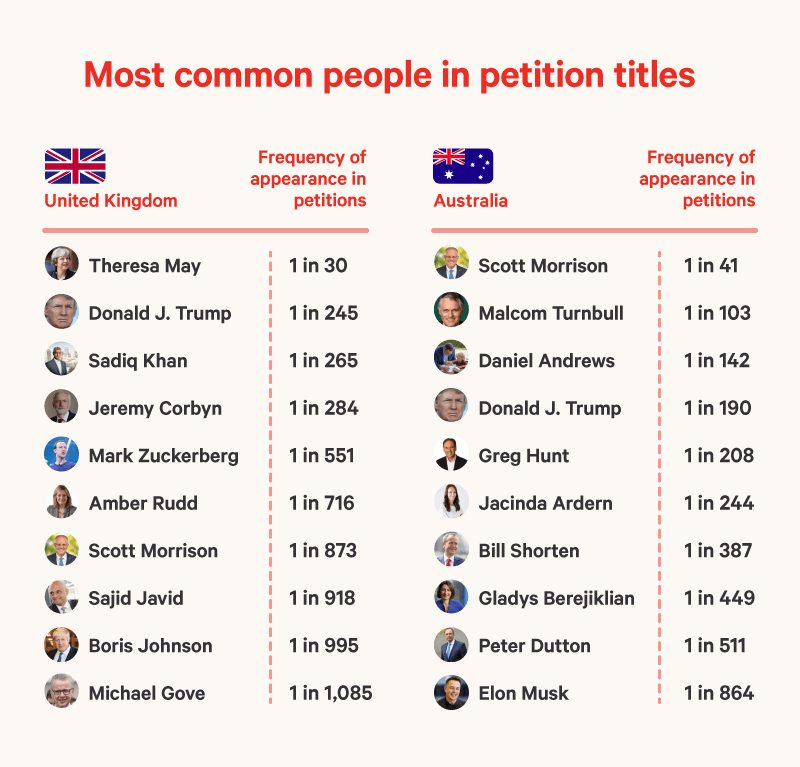
While Ms. May’s most visible petition dealt with Brexit, it was hardly the only cause that activists took up with the Prime Minister’s office. Below are the 10 most signed petitions directed at Theresa May since 2018, with advocates for women’s rights, access to healthcare, and stricter reforms on topics ranging from hate crimes to cell phone use while driving all crafting highly successful petitions aimed at influencing the Prime Minister.
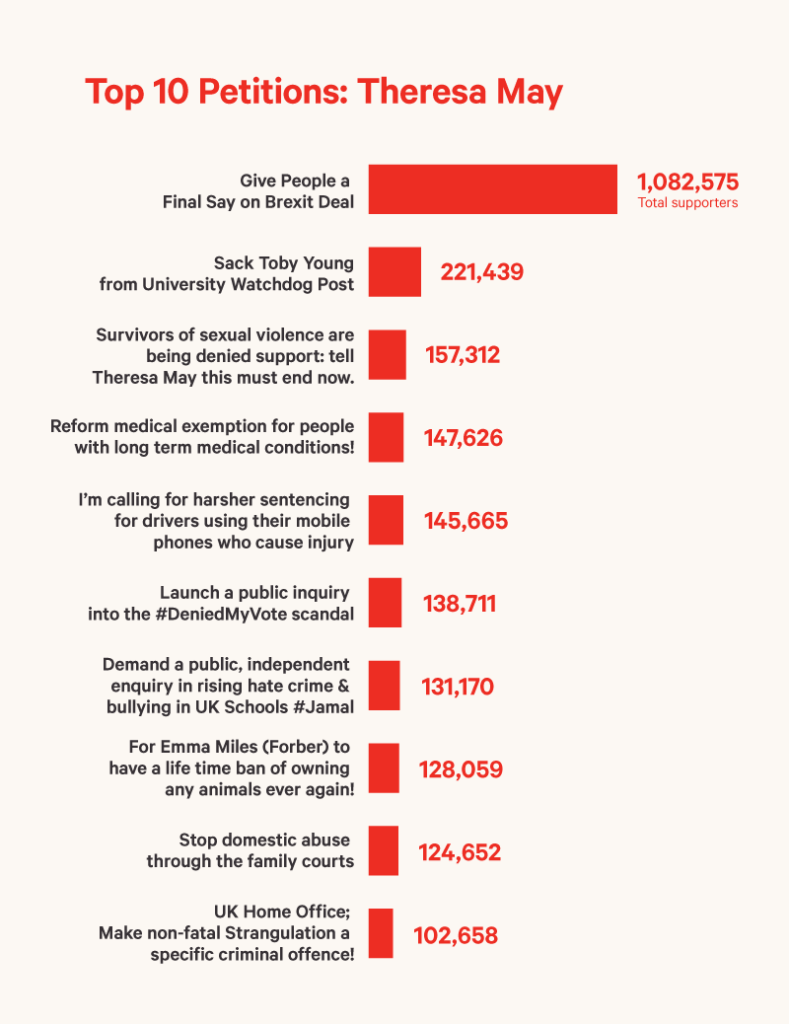
How to “Name Drop” in a Title for Maximum Impact
When seeking to create major change, petition starters oftentimes wonder whether it’s better to address an organization itself (e.g., the U.S. House of Representatives) or instead target specific individuals with prominent roles there (e.g., Speaker Nancy Pelosi). We found evidence of effective petitions that do both.
There are dozens of examples of viral, highly successful petitions that address either specific people or organizations as a whole, and some of the best petitions find a specific person within an organization responsible for decision-making (e.g., a VP of Product for a petition to a technology company or a politician within a political body rather than the entire body itself).
Direct addresses to individuals do have a better chance of being seen by the actual decision maker, but in many cases using an organization’s name in the title will be a stronger method for quickly attracting petition views and support. It’s likely that a blended approach works best here; in other words, addressing a petition to an individual with true decision making power while also mentioning their organization in order to maximize search visibility and engagement with potential supporters.
After you’ve read our research and feel ready to write a petition to create the change you hope to see in the world, you can start a petition on Change.org here.
Nick Allardice is the Chief Product Officer at Change.org. Twitter, LinkedIn.

